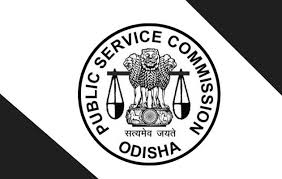Genius Batch | Psychology optional Batch For Opsc / Upsc Mains | Video Course By Adda247
What will you get
Validity
Salient Features
- Learn Anywhere, Anytime & At Your Pace
 Self Paced Learning
Self Paced Learning - Get Your Doubts Solved From Subject Matter Experts
 Doubt Solving Facility
Doubt Solving Facility - Access To Career Counseling, Printable Pdf & Notes
 Counseling, Pdf & Notes
Counseling, Pdf & Notes - With Quality Change & Playback Speed Features
 High Quality Videos
High Quality Videos
Product Highlights
- Access to Carefully Curated Lectures by Top Faculty
- High Quality Videos with Quality change & Playback Speed facility
- Doubt Solving on App, Telegram Groups & In Person at offline Centers
- Seminar & Topper Talks at Offline Centers
- In-Person Counseling, Physical Support Helpdesk at Offline Centers
- Planner, Previous Year Papers & Preparation Tips on Email regularly
Exams Covered
 OPSC
OPSC
This Course Includes
215 Online Live Classes
Overview
Foundations of Psychology
SECTION A
- Introduction: Psychology as a Science: Definitions and perspective. Psychology in relation to other social and natural sciences. Use of interdisciplinary approach.
- Methods of Psychology: Characteristics and components of methods in psychology (induction, deduction and introspection). Observation, Survey, Laboratory and field experiments. Clinical and Case study. Experimental and quasi experimental methods.
- Research methods and quantitative analysis: Major steps in psychological research (problem statement, hypothesis formulation, research design, sampling, tools of data collection, analysis and interpretation and report writing). Methods of data collection (interview, observation, questionnaire and case study). Application of statistical techniques (t-test, one-way ANOVA, correlation and chi-square tests).
- 4. Development of Human Behaviour: The nature, origin and development. Role of genetic and environmental factors in determining human behaviour. Influence of cultural factors and socialization. Influence of child rearing practices and its impact on the growth and development of the individual.
- Attention and Perception: Attention – Determinants of attention including set and characteristics of stimulus. Definition and concept of perception, biological and cultural factors in perception. Perceptual organisation-influence of past experiences, Perceptual defence Space and depth perception, size estimation and perceptual readiness.
- Learning: Concepts and theories of learning (Pavlov, Skinner). The processes of extinction, discrimination and generalization. Programmed learning, self-instructional learning, concepts, types and the schedules of reinforcement. Modelling and social learning, Cognitive view of learning.
- Memory: Concepts and definition of memory and forgetting, 7+/-2 concept and chunking; Encoding, storage and retrieval. Factors influencing retention and forgetting. Theories of forgetting (Repression, Decay and Interference theories).
SECTION B
- Thinking and Problem Solving: Concept formation processes. Reasoning and problem solving. Creative thinking and fostering creativity. Information processing. Decision making and judgment.
- Intelligence and Aptitude: Concept and definition of Intelligence and aptitude, Nature and theories of intelligence. Measurement of Intelligence and aptitude. Concepts and measurement of emotional and multiple intelligence.
- Motivation and Emotion: Definition and concepts. Theories and physiological basis of motivation and emotion. Measurement of motivation and emotion Motivation and emotion-their effects on behaviour.
- Personality: Concept and definition of personality. Theories of personality (psychoanalytical, humanistic, behavioristic, trait and type approaches). Measurement of personality (projective tests, self-report measures). The Indian approach to Personality. Training for personality development.
- Language and Communication: Human language-properties, structure and linguistic hierarchy, Language acquisition-predisposition, critical period hypothesis. Theories of language development (Skinner, Chomsky), Process and types of communication. Effective communication and training.
- Attitudes, Values and Interests: Definitions, concepts of attitudes, values and interests. Formation and maintenance of attitudes. Measurement of attitudes, values and interests. Techniques of attitude change, strategies for fostering values.
- Recent Trends: Computer application in the psychological laboratory and psychological testing. Artificial Intelligence. Psycho cybernetics. Study of consciousness sleep-wake schedules; dreams, stimulus deprivation, meditation, hypnotic/drug induced states. Extrasensory perception
PAPER-II
SECTION-A
- Psychological Measurement of Individual Difference: The nature of individual differences. Characteristics and construction of standardized psychological tests. Types of psychological tests. Use, misuse and limitation of psychological tests. Ethical issues in the use of psychological tests.
- Wellbeing and Mental Disorders: Concept of health, positive health, wellbeing and ill health. Mental disorders (anxiety disorders, mood disorders, schizophrenia and delusional disorders; personality disorders, substance abuse disorders). Causal factors in mental disorders. Factors influencing positive health, wellbeing, life style and quality of life.
- Therapeutic Approaches: Psychodynamic therapies. Behaviour therapies. Client centered therapy. Cognitive therapies. Indigenous therapies (Yoga, Reiki, Meditation) Biofeedback therapy. Prevention and rehabilitation of the mentally ill.
- Work Psychology and Organizational Behaviour: Personnel selection and training. Use of Psychological tests in the industry. Training and human resource development. Theories of work motivation. Leadership and participatory management. Advertising and marketing.
- Application of Psychology to Educational Field: Psychological principles underlying effective teaching-learning process. Learning styles. Gifted, retarded, learning disabled and their training. Training for improving memory and better academic achievement. Personality development and value education, Educational, vocational guidance and Career counselling. Use of Psychological tests in educational institutions.
- Community Psychology: Definition and concept of Community Psychology. Role of community psychologists in social change. Use of small groups in social action. Arousing community consciousness and action for handling social problems. Group decision making and leadership for social change.
Section-B
- Application of Psychology to disadvantaged groups: The concepts of disadvantaged, deprivation and socially deprived. Social, physical, cultural and economic consequences of disadvantaged and deprived groups. Educating and motivating the disadvantaged towards development.
- Psychology and the problem of social integration: The concept of social integration. The problem of caste, class, religion and language conflicts and prejudice. Nature and manifestation of prejudice between the in-group and out-group. Casual factors of such conflicts and prejudices. Psychological strategies for handling the conflicts and prejudices. Measures to achieve social integration.
- Application of Psychology in Information Technology and Mass media: The present scenario of information technology and the mass media boom and the role of psychologists. Selection and training of psychology professionals to work in the field of IT and mass media. Multilevel marketing. Impact of TV and fostering value through IT and mass media. Psychological consequences of recent developments in Information Technology.
- Application of Psychology in the field of Defence: The concept of Military psychology, Aviation psychology and Psychological warfare. Role of Military psychologists in the defence. Selection, recruitment and training of personnel. Facilitating the process of adjustment of personnel to military life-Role of Counselling. Devising Psychological tests for defence personnel. Psychological disorders due to war. Human engineering in Defence.
- Rehabilitation Psychology: Primary, secondary and tertiary; prevention programmes role of psychologists. Organizing of services for rehabilitation of physically, mentally and socially challenged persons including old persons. Rehabilitation of persons suffering from substance abuse, juvenile delinquency, criminal behaviours. Rehabilitation of victims of violence. Rehabilitation of HIV/AIDS victims.
- Psychology and Economic development: Achievement motivation and economic development. Characteristics of entrepreneurial behavior. Motivating and Training people for entrepreneurship and economic development. Women Entrepreneurs.
- Application of Psychology to environment and related fields: Environmental psychology-effects of noise, pollution and crowding. Population psychology psychological consequences of population explosion and high population density. Motivating for small family norms. Impact of rapid scientific and technological growth on degradation of environment.
- Other applications of Psychology: Sports psychology-improving performance of sports personnel, Psychology and understanding of political behaviour. Voting behaviours. Psychology of corruption and strategies to deal with Psychology of terrorism.
This Package Includes
- 300+ hours of video classes
- ବିଶେଷଜ୍ଞମାନଙ୍କ ସହିତ ଅସୀମିତ ସନ୍ଦେହର ସମାଧାନ କରନ୍ତୁ
- ପରୀକ୍ଷାକୁ କିପରି CLEAR କରାଯିବ ସେନେଇ ରଣନୀତି ଅଧିବେଶନ
- ବିଶେଷଜ୍ଞଙ୍କ ଠାରୁ ପ୍ରସ୍ତୁତି ଟିପ୍ସ ପ୍ରାପ୍ତ କରନ୍ତୁ ଏବଂ ସମୟ ପରିଚାଳନା ଶିଖନ୍ତୁ
Need any help?
Get help with our 24x7 Customer Service
Chat with us for any queries
Call us directly for purchase related queriesMon - Sun | 7:00 am - 11:00 pm
(08130406247)

Need any help?




 215
215
